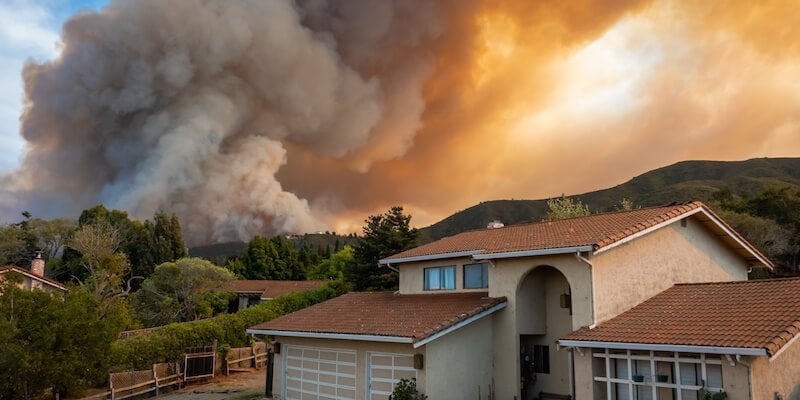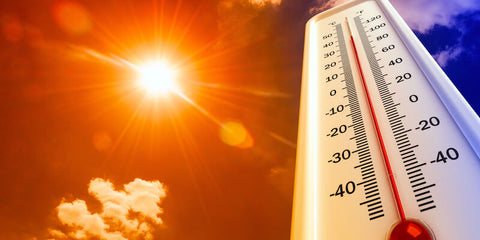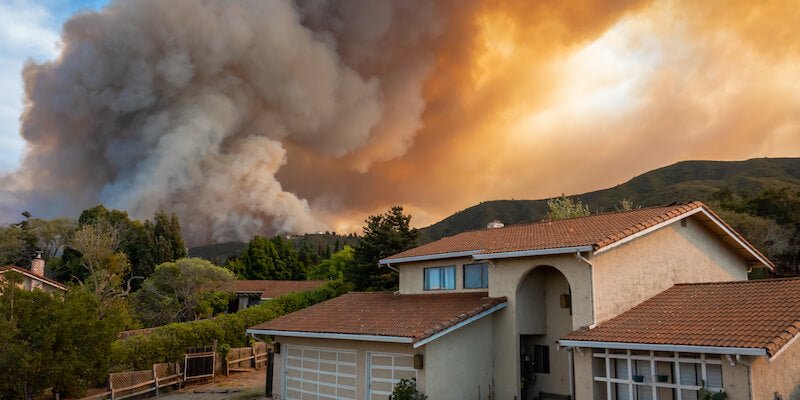Wildfire Season is Approaching: How to Protect Yourself?

Many regions across the world are preparing for the wildfire season right now. That means some of you are all too familiar with the destruction and pollution the fires cause each year and some maybe not. But experts say that even those who live hundreds of miles away are feeling a slew of adverse health effects from the fires. Experts are also saying that this year’s wildfire is the worst to come because due to climate change, temperatures are rising.
Hot temperatures make wildfires more intense

When wildfire and extreme heat happen at the same time they intensify air pollution. The chemical reactions that create ozone in the atmosphere occur more often in higher temperatures and the smoke from the wildfires adds significantly more fine particulate matter into the air. The combination of heat and smoke consequently create harmful ground-level ozone.
Smoke from large wildfires can spread around the world due to air currents. The smoke-polluted air from California wildfires have reached New York and Washington on the east coast and the effects of Siberian wildfires have made their way to Alaska. The major amounts of smoke feeding into the air has been steadily reducing air quality and more cities and towns across the globe are experiencing smoggier weather.
Can wildfire smoke affect health?

Wildfire smoke can cause a range of health issues. People exposed to high concentrations of air pollution have complained of chronic coughing, wheezing and difficulty in breathing. More hospitalizations due to asthma are occurring in regions like Australia, which saw scorns of wildfire last year. Even in healthy people lung functionality can be reduced due to fine particulate matter pollution.
Studies show that fine particulate matter at PM 2.5 (measurement to size air pollutants) can be easily inhaled and long exposure to them could cause exacerbated asthma, lung and heart disease. And while some harmful chemicals are inhalable due to their size, wildfires emit more PM 2.5 into the air, leaving our lungs even more vulnerable during wildfire season. Scientists found in a study over three years that based on where people lived, those in polluted areas had more respiratory diseases like chronic obstructive pulmonary disease (COPD). Air pollutants like smoke can enter and damage blood vessels, inflaming them and narrowing them making it harder for blood to flow freely. This can cause heart issues. Smoke also irritates the eyes and nose making sleeping and daily life more uncomfortable.
Wildfire smoke can cause indoor air pollution

Smoke can travel hundreds of miles from its source and that’s why everyone should be more aware of their surrounding air quality during this year’s wildfire season. Smoke can also penetrate closed doors and windows, traveling the hallways, leading to unhealthy air quality levels in the home.
The good news though is that healthy people will generally only feel short-term effects of higher levels of polluted air and that it's now super easy to get rid of wildfire smoke from inside your home.
The Environmental Protection Agency (EPA) of the United States suggests to routinely clean the filters of the HVAC systems in your home and to use air purifiers to maintain breathable and healthy air this wildfire season, while staying indoors. But because air pollutants from smoke are 2.5 PM, these small pollutants are able to bypass many air purifying solutions that can only trap larger particles. The EPA and experts suggest only using high-efficiency particulate absorbing (HEPA) filters as they have shown to be most effective against smoke, removing over 99.97 percent of particulate matter from the air. Also, if you want to eliminate the odors and smell of smoke, carbon filtration is also needed.
That’s why the Sensibo Pure is equipped with a 3 layered HEPA filter which includes a pre-filter, carbon filter and HEPA filter that will eliminate particles as much as 0.1um (lower than 2.5 PM) including dust, pollen, bacteria, odors and smoke from your home. The Sensibo Pure is also equipped with LED sensor lights that will change color based on the air quality in the room and when poor air quality is detected will activate filtration (on its own) to the highest levels to make sure any pollutants are taken care of before circulating your home. With an easy connectable smart application, you get sweet notifications of your room's air quality and can control the unit from anywhere.
Be prepared this wildfire season and protect your home from smoke and odors that can find its way inside.






































-1.jpg?height=200&name=photo_2023-11-30_19-30-22%20(1)-1.jpg)
